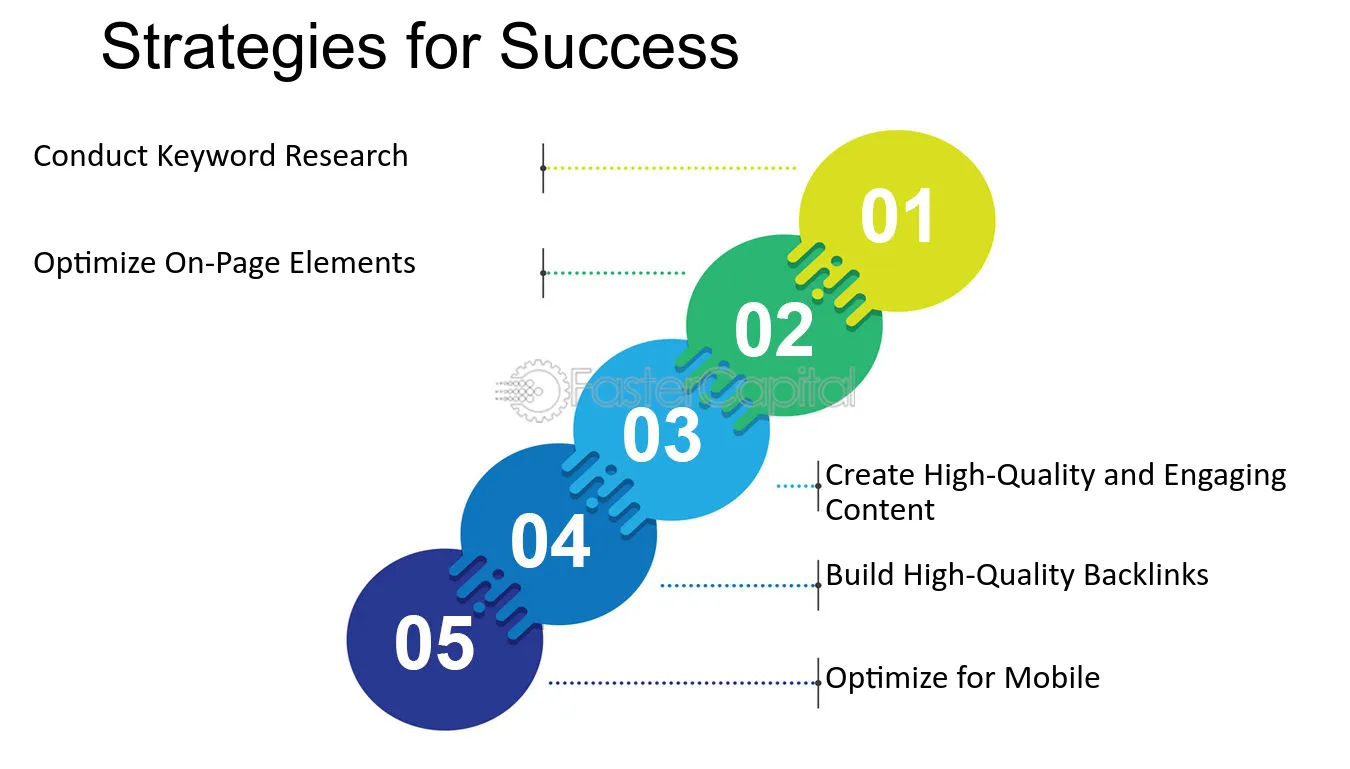
Unlocking Success: The Crucial Role of Structured Data in Search Engine Optimization
In today’s digital landscape, the importance of structured data in search engine optimization cannot be overstated. As businesses strive to enhance their online presence and reach their target audience effectively, understanding the crucial role that structured data plays in optimizing search engine performance becomes paramount. By implementing structured data markup on websites, businesses can provide search engines with valuable information about their content, resulting in improved visibility, higher rankings, and ultimately, unlocking success in the competitive online market.
Structured data plays a crucial role in search engine optimization (SEO) by providing search engines with clear and organized information about a website’s content. By using structured data markup, website owners can help search engines better understand the context of their content, leading to higher visibility and better rankings in search results. This is because structured data helps search engines present more relevant and informative results to users, ultimately improving the overall user experience.
In simple terms, structured data acts as a roadmap for search engines, guiding them to relevant information on a website and making it easier for them to categorize and display that information in search results. By implementing structured data, website owners can increase the chances of their content being featured in rich snippets, knowledge graphs, and other prominent search result features, which can significantly boost organic traffic and drive more qualified leads to their site. Therefore, incorporating structured data into SEO strategies is essential for maximizing online visibility and achieving long-term success in the digital landscape.
Structured data markup is essential for optimizing your website’s visibility in search engine results. There are several types of structured data markup that you can implement to improve your SEO efforts.
One common type of structured data markup is Schema.org markup, which helps search engines better understand the content on your website. This can include information about your products, services, events, and more, making it easier for search engines to display relevant information to users.
Another important type of structured data markup is JSON-LD (JavaScript Object Notation for Linked Data), which provides a way to add structured data directly to your webpage’s code. This helps search engines quickly identify and categorize the content on your site, leading to better rankings and visibility in search results.
By incorporating these types of structured data markup into your website, you can enhance your SEO efforts and improve your chances of ranking higher in search engine results pages. This will ultimately drive more organic traffic to your site and increase your chances of success online.
Implementing structured data on your website can have a significant impact on your SEO efforts. Structured data helps search engines understand the content on your site better, which can lead to improved search engine rankings and visibility. By providing search engines with clear and organized information about your content, you make it easier for them to display relevant results to users, ultimately driving more traffic to your site.
Structured data also enhances the appearance of your content in search engine results pages (SERPs) through rich snippets. Rich snippets provide additional information, such as ratings, reviews, and pricing, directly in the search results, making your listings more appealing to users. This increased visibility can lead to higher click-through rates and ultimately more conversions for your website. By leveraging structured data to optimize your content for search engines, you can ensure that your website stands out from the competition and attracts more organic traffic.
Structured data plays a crucial role in boosting search engine rankings by providing search engines with clear and organized information about a website’s content. When search engines like Google can easily understand the context and relevance of a webpage through structured data markup, they are more likely to display that webpage prominently in search results. This means that websites with structured data are more likely to rank higher and attract more organic traffic.
By incorporating structured data in your website, you are essentially providing search engines with a roadmap to navigate and understand your content effectively. This allows search engines to display rich snippets, knowledge graphs, and other enhanced search results, which can significantly increase your website’s visibility and click-through rates. In essence, structured data acts as a powerful signal to search engines, helping them better comprehend and showcase your content to users searching for related information. By implementing structured data markup on your website, you can improve your chances of ranking higher in search engine results pages and driving more organic traffic to your site.
Structured data is a powerful tool for enhancing your website’s visibility in search engine results. By adding structured data markup to your content, you provide search engines with additional context about your website’s information, making it easier for them to understand and display relevant data to users. To make the most of structured data, follow these best practices:
First, identify the most relevant schema markup for your content. Schema.org provides a wide range of schemas that you can use to mark up different types of content, such as articles, products, events, and more. Choose the appropriate schema that aligns with the content on your website.
Next, ensure that your structured data is implemented correctly. Use tools like Google’s Structured Data Testing Tool to validate your markup and fix any errors or warnings. Properly structured data helps search engines better understand your content and can lead to higher rankings in search results.
Lastly, regularly monitor and update your structured data. As search engine algorithms evolve, it’s important to stay current with best practices and make adjustments to your markup as needed. By following these best practices for using structured data, you can improve your website’s SEO performance and attract more organic traffic.
Implementing structured data on your website is crucial for improving your search engine optimization (SEO) efforts. Fortunately, there are many tools and resources available to help you with this process.
One popular tool for structured data implementation is Google’s Structured Data Markup Helper, which allows you to easily add structured data to your webpages. Additionally, Schema.org provides a comprehensive library of schemas that you can use to mark up your content and make it more easily understood by search engines.
By utilizing these tools and resources, you can ensure that your website is properly optimized for search engines, resulting in higher visibility and better rankings. Structured data not only helps search engines better understand your content but also enhances the user experience by providing richer snippets in search results. Don’t overlook the importance of structured data in your SEO strategy – it can make a significant difference in unlocking the success of your website.
Structured data has proven to be a game-changer in boosting SEO performance for businesses. Let’s dive into some real-life case studies to understand the impact of structured data usage.
One such success story comes from a local restaurant that implemented structured data markup on their website. By marking up their menu items, opening hours, and customer reviews, they saw a significant increase in their visibility on search engine results pages. This led to a surge in online reservations and foot traffic, ultimately driving more revenue for the restaurant.
Another noteworthy example is an e-commerce store that leveraged structured data for their product pages. By providing detailed product information such as prices, availability, and ratings in a structured format, they witnessed a notable uptick in organic traffic and click-through rates. This resulted in a boost in conversions and overall sales for the online store.
These case studies underscore the importance of structured data in enhancing SEO efforts and driving tangible results for businesses. By implementing structured data markup effectively, businesses can improve their online visibility, attract more relevant traffic, and ultimately unlock the path to success in the digital landscape.
When it comes to implementing structured data for SEO, there are common mistakes that many website owners make that can hinder their search engine rankings. One of the most common mistakes is failing to properly implement structured data markup on all relevant pages of a website. This can lead to search engines not fully understanding the content and context of the page, which can negatively impact how it appears in search results.
Another mistake to avoid is using incorrect or outdated schema markup. It’s essential to stay updated on the latest schema guidelines provided by search engines like Google to ensure that the structured data you implement is relevant and accurate. Using outdated schema markup can confuse search engines and lead to lower visibility in search results.
Lastly, neglecting to regularly test and monitor structured data is a mistake that can have a significant impact on SEO performance. It’s crucial to regularly check for any errors or issues with your structured data markup to ensure that it is helping, not hurting, your website’s search visibility. By avoiding these common mistakes and staying proactive in optimizing structured data, you can improve your website’s SEO performance and boost your rankings in search engine results.
As we look towards the future of SEO, structured data is set to play an increasingly crucial role. With search engines like Google placing greater emphasis on understanding and organizing data, websites that employ structured data markup will have a competitive edge in search engine rankings. This markup helps search engines better interpret the content on a website, leading to more accurate and relevant search results for users.
One emerging trend in structured data is the use of schema markup to provide context and additional information about content on a website. By incorporating schema markup, websites can enhance their visibility in search engine results pages and increase click-through rates. Additionally, as voice search continues to rise in popularity, structured data will be essential for optimizing content to better align with how people conduct voice searches.
In conclusion, as search engines evolve and user behavior changes, structured data will remain a cornerstone of effective SEO strategies. By implementing structured data markup on websites and staying abreast of emerging trends, businesses can position themselves for success in an increasingly competitive online landscape.



